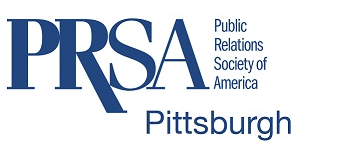The Importance of Recruiting and Retaining Students from Historically Black Colleges and Universities
By Charlene Payne
D&I Committee Member
This blog is part of an ongoing series that highlights content featured in PRSA Pittsburgh’s Diversity & Inclusion Toolkit.
“Kick this one here for me and my DJ” are the lyrics to the throwback I’m listening to, reminding me of how bitter-sweet this time of year is as students go back to school. Echoes of footsteps going up and down the stairs as the little ones get ready for school, students catching up with one another at the bus stop, and the school bus door loudly squeaking as it opens and closes.
I took part in a new experience this year—sending my first child off to college. I wasn’t ready for the departure but I was thoroughly excited about the new experiences headed his way. I felt a dash of stress while meeting staff members, locating different departments across campus, and mentally moving him into the dorm room within a short window of time. When I turned the handle to the dorm room, I entered into a new phase in my life. I was now meeting like-minded young people who were serious about starting their futures.
My son doesn’t attend a Historically Black College or University (HBCU), although I wanted him to have a similar collegiate experience as I had at Florida A&M University, striving towards excellence while further developing himself as a young Black man. It just wasn’t in the cards this time, but as Whitley Gilbert from the show A Different World said, “Baby, you can go to school any place. But no school will love ya and teach ya to love yourself like Hillman (University).” I feel this to my core, and encourage anyone who can to attend a HBCU to do so and explore the unique benefits of what they offer.
HBCUs are Untapped Pools of Talent
HBCUs were established to offer Black students the opportunity for higher education during a time when it was prohibited to educate them. The Office of Civil Rights says these institutions are a “…vital part of American higher education”. The United Negro College Fund highlights their total economic impact of $206 million, production of 1,660 jobs a year, and lifetime earnings of $1.6 billion.
The United States comprises 107 colleges (with more than 228,000 enrolled students) that are identified by the United States Department of Education as Historically Black Colleges and Universities.
Though HBCUs make up only 3% of America’s colleges and universities, they produce almost 20% of all Black college graduates with a bachelor’s degree. Yet, companies are not recruiting HBCU students at the same rate as students who attend predominantly white institutions, or PWIs.
According to Golin, a global public relations agency located in Chicago, Illinois that specializes in DE&I (diversity, equity and inclusion) strategy, “though the Bureau of Labor Statistics has no formal data on companies who hire or do not hire HBCU graduates, anecdotal reports suggest that HBCUs are untapped pools of talent. Moreover, diversity data reveals that PR agencies’ talent acquisition teams are not actively recruiting from these institutions in a manner consistent with PWIs.”
Additionally, Golin reports that, “despite corporate attempts to overlook and discredit the academic integrity of HBCUs, one Gallup poll revealed that HBCU graduates have the highest rate of financial, career and emotional well-being of college graduates.”
How PR Agencies Can Support HBCU Students
Help to diversify the industry by supporting minority candidates who aspire to a career in PR by helping them develop industry familiarity and knowledge, relevant skills and a network of professional contacts. PR agencies can:
- Be generous in offering internship and/or mentorship opportunities. Even though your business or organization may not have a formal paid or unpaid internship program, be creative about offering exposure to a professional work environment.
- Have agency, corporate and other speakers come to campuses to help with LinkedIn profiles, professional social media presence and resume writing and interviewing.
- Set aside a fundraising event to support students with scholarships.
- Partner with students or student groups to drive diversity and inclusion initiatives locally, or to implement a new program or project for the community.
Learn More about HBCUs in Pennsylvania & Notable Graduates
In Pennsylvania, there are two HBCUs: Cheyney University of Pennsylvania (formerly known as Cheyney State College and the nation’s oldest HBCU) and Lincoln University.
Some famous and notable HBCU graduates include:
- Mary McLeod Bethune, founder of Bethune Cookman College, educator, philanthropist
- Patricia Harris, former Secretary, U.S. Departments of Health, Education, and Welfare and Housing and Urban Development (HUD)
- Christa McAuliffe, first educator in space
- Leontyne Price, world-recognized soprano opera singer
- Kenneth B. Clark, psychologist
- Charles Drew, surgeon and medical researcher
- W.E.B. DuBois, co-founder of the National Association for the Advancement of Colored People (NAACP), author, writer, educator, sociologist
- Dr. Frederick S. Humphries, Past President of Florida A&M University, Past President of Tennessee State University, “Entrepreneur of Black Excellence in Higher Education”
- Dr. Martin Luther King, Jr., Nobel Peace Prize recipient; civil rights activist
- Thurgood Marshall, Supreme Court Justice; lawyer, civil rights activist
- Louis Sullivan, Secretary, U.S. Department of Health and Human Services
Learn More & Take the PRSA Pittsburgh D&I Pledge
PRSA Pittsburgh encourages its members to access its Diversity & Inclusion Toolkit for more information on ways to cultivate diversity and inclusion in the workplace.
Additionally, PRSA Pittsburgh’s D&I Committee is proud to present our D&I pledge to PRSA members. The intent of the pledge is to advance diversity and inclusion in the communications and PR profession. After taking the pledge, we hope employers spark hard conversations in their workplaces and begin to build a more diverse and inclusive environment, ultimately earning deeper trust and more commitment from their employees.
PRSA Pittsburgh encourages PRSA members to virtually sign and commit to our D&I pledge. We also encourage members to print out and share the pledge (PDF) with their colleagues and peers who may not have access to technology.





As a graduate and former head of PR at Hampton University, it is heartwarming to see this well-deserved spotlight on the role and value of attending and supporting HBCUs. The nation’s top doctors, teachers and business leaders – and Vice President of the United States – are products of predominantly and historically Black institutions of higher education! Cheers to you and all the best things for you and your son as you both embark on a new chapter! #HBCUproud